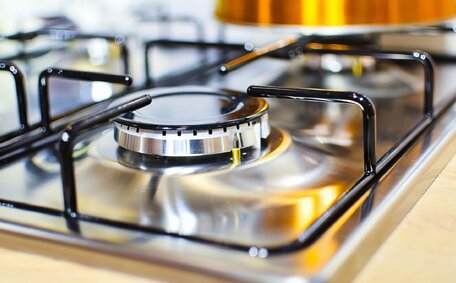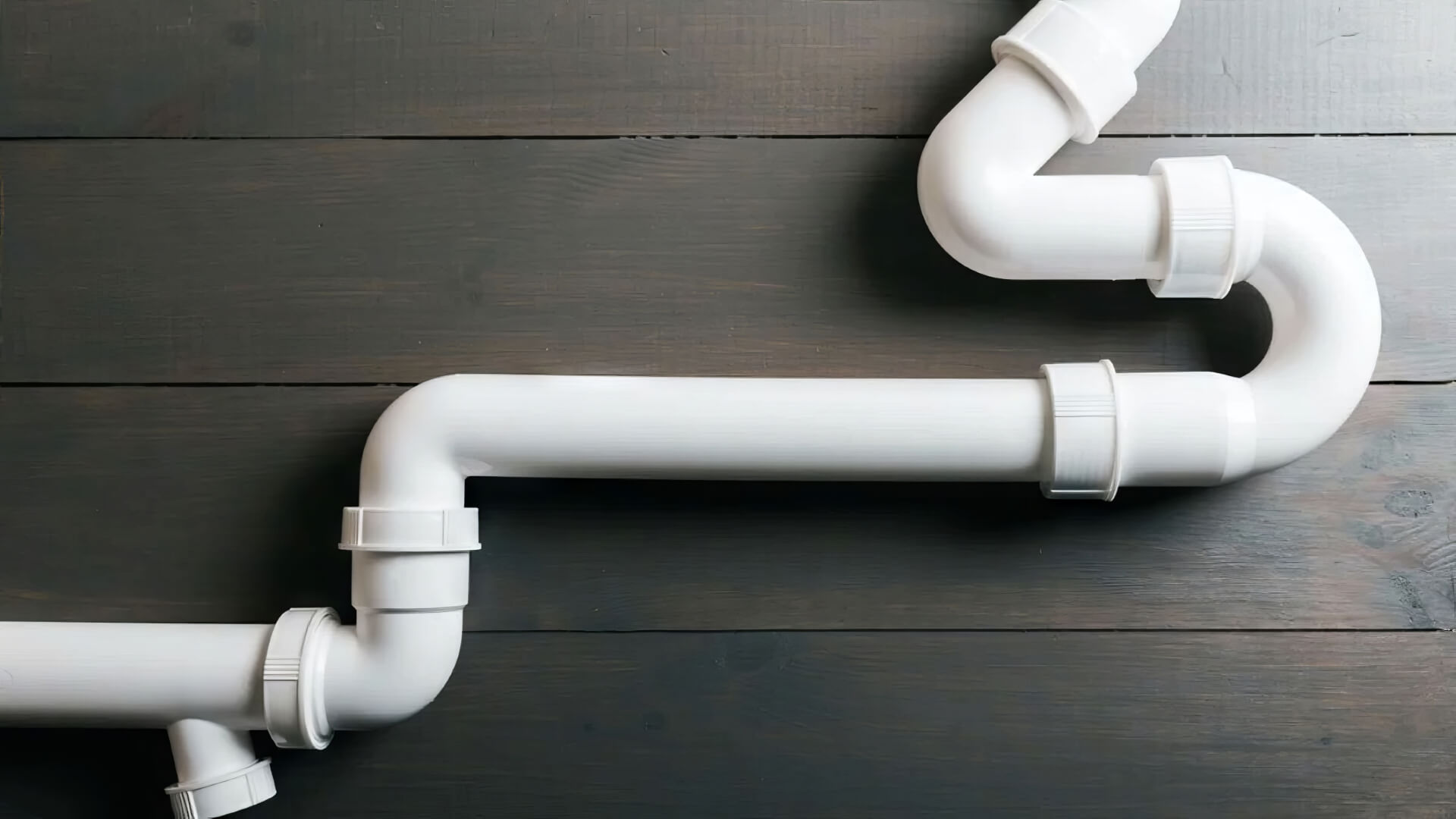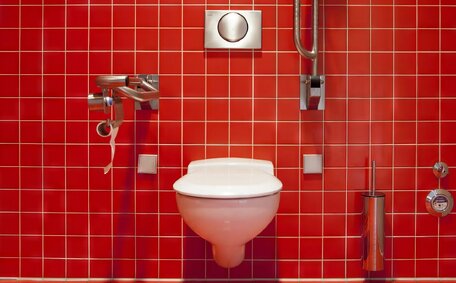What is Hard Water and Why is it Problematic for Plumbing?
The water contains a high amount of dissolved minerals like calcium and magnesium, which characterise hard water in your home. Water can be measured in hardness levels, quantified in grains per gallon gpg.
Here in Campbelltown, Sydney, the water hardness level ranges from 1 – 2 gpg based on the United States Geological Survey.
As the minerals in hard water travels through your plumbing, they can precipitate out of the solution. Over time, these minerals form solid mineral deposits and scale buildup. This limescale buildup can lead to significant effects hard water has in your home, including:
- Reduced water flow and pressure in air conditioning systems
- Decreased lifespan of your water heater, washing machines, and other appliances
- Noisy pipes
- Higher energy bills
- Costly plumbing repairs that can damage your budget
Mineral buildup does hard water damage by reducing the efficiency and performance of appliances, thus highlighting the home management challenge. For instance, the use water laden with heavy mineral buildup inside your heaters and boilers undermines optimal operation. In your washing machine, does hard mineral buildup leave behind stubborn white scale residues and detergent scum on garments.
To get rid of the damage hard water can cause, many homeowners invest in water softening solutions. Water filtration softeners use an ion exchange process to extract calcium and magnesium from your water supply. This protects the pipes and helps to extend life your household plumbing fixtures and appliances significantly.
How Hard Water Damages Pipes and Plumbing Fixtures
The impact hard water your plumbing sustains over time includes mineral deposits that can cause major damage to pipes and fixtures. As the scale builds up, it restricts water flow and puts extra strain on piping. This can lead to leaks, bursts, and other costly plumbing issues.
Hard water minerals damage fixtures such as your faucets and showerheads by clogging the small openings. As these openings narrow, water pressure drops significantly. Buildup in your pipes likewise shortens the operational lifespan of various home appliances.
Specifically, here’s how The impact hard water has harms common plumbing components:
- Piping: Hard water buildup in pipes narrows their diameter, resulting in lowered water pressure. Water can also cause pipes to become more prone to corrosion and leaks.
- Faucets: Mineral deposits clog small openings, resulting in sporadic water flow and dripping.
- Showerheads: Hard water deposits reduce water pressure and flow, leading to an unsatisfactory shower.
- Water Heaters: Scale buildup on hot water heater coils reduces heating efficiency, driving up energy bills.
- Toilets: Mineral deposits prevent flapper valves from sealing properly, causing tanks to continuously run.
Installing water softeners provides the best protection against the hard water affect on your plumbing water system. These systems ensure the minerals your water carries are removed effectively through an ion exchange process. Contact our team today to learn about hard water solutions that can extend the life of your pipes and fixtures.
Signs You Have a Hard Water Problem
Signs hard water can disrupt home water systems gradually over time, being intricately linked to its mineral content. Be on the lookout for these common signs hard water problems present in your Campbelltown home:
- Chalky mineral deposits and soap scum buildup - Hard water makes it difficult to lather soap and shampoo properly. You may notice soap scum can accumulate, leaving residue on sinks, tubs, and showers.
- Spots and film on dishes - Hard water can leave a chalky film on glassware, dishes, and silverware, even post-rinse.
- Dry skin and hair - Hard water prevents soap and shampoo from rinsing cleanly off your skin and hair, causing dryness over time.
- Stiff laundry and white/grey residues - Clothes washed in hard water feel coarse and scratchy. And they develop grey or white mineral residue, which reappears even after second rinses.
- Scale buildup in pipes, fixtures and appliances - Check for reduced water flow from faucets, showerheads, and toilet tanks due to mineral deposits in pipes. Scale build up also diminishes efficiency in appliances such as water heaters and washing machines.
If you notice any of these symptoms of a hard water problem, contact our team of licenced Campbelltown plumbers. We can test your home’s water, diagnose issues accurately, and recommend the best water softening or conditioning solutions to resolve hard water troubles.
Chalky mineral deposits and soap scum buildupSolutions for Dealing with Hard Water
To prevent damages caused hard water buildup, it’s essential to manage and treat the hard water entering your home. Here are some of the top solutions for dealing with hard water issues:
Install a Water Softener
Water can affect your home’s integrity, but softeners provide an effective solution for removing minerals and preventing scale buildup. They work by replacing calcium and magnesium ions in the water with sodium ions through a process called ion exchange. The resulting soft water circulates safely through your home plumbing after treatment.
Benefits of water softeners, designed to protect your plumbing, include:
- Protection for pipes, fixtures, and appliances
- Restored water flow and water pressure
- Reduced soap scum and residue
- Cleaner laundry without stiff, scratchy fabrics
- Improved lathering of soaps and shampoos
Ensuring your water softener is properly sized and maintained as per manufacturer guidelines guarantees efficient running.
UseCleaning Agents Regularly
While water softeners treat full water supplies, systems like reverse osmosis can also be used to remove existing scale. Soak showerheads, faucets, and other fixtures in white vinegar to remove minerals, as these deposits can often be dissolved and function restored.
You can also prevent soap scum buildup by wiping down sinks, showers, tubs, and tile with squeegees after bathing. This simple habit stops mineral residues before they calcify and harden onto surfaces.
Replace Old Appliances
Consider replacing ageing water heaters, washing machines, and dishwashers with newer, more efficient models. Modern appliances are engineered to mitigate the effects your hard water has. Upgrading allows you to take advantage of the latest technology for managing hard water.
Ensuring an appliance’s capacity to manage dissolved minerals mitigates the impact hard water would have on its lifespan. This will help avoid damage issues down the road.
We hope these tips illustrate how to fix your home’s hard water troubles effectively. Please call us if you have any other questions - we’re happy to help assess your situation and recommend the best solutions!
Installing a Water Softening System
Installing a whole-house water softener system can be the most effective strategy to protect your plumbing appliances from the build up caused by hard water in your Campbelltown home. As licenced plumbers specialising in water quality, we recommend Kenmore or Fleck water softeners for their performance and durability.
The water treatment process to safeguard the water your family uses involves:
- Selecting the correctly sized softener system based on household size and water hardness level. We provide water testing that can help match your home’s needs.
- Finding the main water supply line and planning appropriate tie-in points for the softener.
- Attaching plumbing to bypass hard water around outside spigots. We want to treat all indoor water sources.
- Securing and levelling the mineral tanks for optimal filtration flow and recharge cycles. Proper placement is key.
- Programming the system controller to regenerate on a regular basis, preventing mineral buildup.
- Adding salt to the brine tank which recharges the resin beads that collect hardness minerals.
- Testing the newly installed softener to validate water softening performance throughout your home’s plumbing system.
Our Campbelltown plumbing technicians handle the entire installation process professionally. This ensures your satisfaction as we provide quality solutions against the effects hard water plumbing can have in your home.
Investing in a water softener protects your appliances and your utility bills by potentially reducing costs over time. By scaling appliances and extending equipment life, water softening effectively pays for itself through reduced utility and repair costs.
We offer free consultations to discuss your family’s needs. Call today to learn more about total home water softening systems!
Performing Regular Maintenance to Prevent Buildup
To combat hard water damage, it’s crucial to perform regular maintenance on your plumbing system. At Campbelltown Plumbing, we recommend inspecting household appliances and fixtures prone to scale buildup each month.
Soak showerheads and faucet aerators in vinegar overnight to dissolve the deposits hard water has left on your fixtures. Use a long, narrow bottle brush to scrub the small openings clogged by hardness minerals.
Also, monitor toilet tanks, your dishwasher, and flappers, addressing hard water impact on these components, and inspect water heater coils, washing machine hoses, and water lines. Clean or upgrade your hard water plumbing fixtures if you notice restricted flow or performance dilemmas.
Our licenced plumbers adopt proactive maintenance to address the effects hard water has and to extend equipment lifespan:
- Annual water heater flushing to prevent sediment buildup
- Testing water pressure and flow rates to catch problems early
- Routine maintenance of your pipes fixtures, like clearing main sewer drains before clogs occur
- Updating old pipes and fittings vulnerable to corrosion
Don’t wait until you have serious plumbing troubles or appliance failures. Schedule maintenance checks with our team to keep your water flowing smoothly.
To combat hard water damage, it’s crucial to perform regular maintenance on your plumbing system. At Campbelltown Plumbing, we recommend inspec the small openings clogged by hardness minerals.
Clean or replace fixtures if you notice restricted flow or performance irevent sediment buildup
Using Pipe Materials Resistant to Hard Water
When it comes to handling hard water, using pipe materials that resist mineral buildup is crucial for long-tp>PEX (crosslinked polyethylene) pipe has become very popular in modern plumbing systems. The flexible tubing material resists mineral deposits caused by hard water as well as chlorine damage, and also simplifies retrofits or future repairs throughout your home.
Copper Pipes
While copper pipes can still develop pinhole leaks over time when exposed to acidic water, the material itself does not corrode easily. Properly maintained copper, often used in commercial plumbing, offers an extended service life.
We recommend tinning copper pipe connections during any plumbing upgrades. The tin coating provides extra protection against scale buildup and erosion at joints.
PVC Piping
PVC (polyvinyl chloride) pipes last a very long time, which offsets their higher upfront cost. The nonporous material resists corrosion and mineral deposits better than metal pipes.
One downside is that PVC can become brittle and crack if exposed to freezing temperatures or direct sunlight. So proper placement is important during installation.
No matter which pipe type you choose, be sure to invest in a water softener system as well. Softening the water is still the best way to prevent scale accumulation and damage from occurring in those pipes over time.






